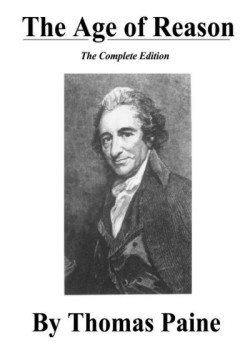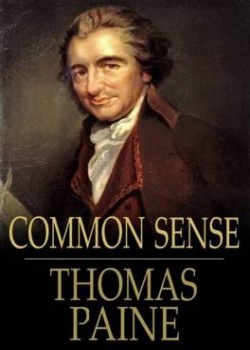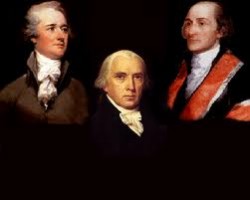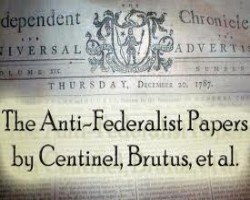CONSTITUTION OF THE UNITED STATES
CHAPTER XXXI
POWERS OF CONGRESS - TERRITORIAL GOVERNMENTS
§ 1326. THE next clause of the same article is:
"The congress shall have power to dispose of and make all needful rules and regulations respecting the territory and other property belonging to the United States; and nothing in this constitution shall be so construed, as to prejudice any claims of the United States, or of any particular state."
The proviso thus annexed to the power is certainly proper in itself, and was probably rendered necessary by the jealousies and questions concerning the Western territory, which have been already alluded to under the preceding head. It was perhaps suggested by the clause in the ninth article of the confederation, which contained a proviso, "that no state shall be deprived of territory for the benefit of the United States."
§ 1327. The power itself was obviously proper, in order to escape from the constitutional objection already stated to the power of congress over the territory ceded to the United States under the confederation. The clause was not in the original draft of the constitution; but was added by the vote of ten states against one.
§ 1328. As the general government possesses the right to acquire territory, either by conquest, or by treaty, it would seem to follow, as an inevitable consequence, that it possesses the power to govern, what it has so acquired. The territory does not, when so acquired, become entitled to self-government, and it is not subject to the jurisdiction of any state. It must, consequently, be under the dominion and jurisdiction of the Union, or it would be without any government at all. In cases of conquest, the usage of the would is, if a nation is not wholly subdued, to consider the conquered territory, as merely held by military occupation, until Its fate shall be determined by a treaty of peace. But during this intermediate period it is exclusively subject to the government of the conqueror. In cases of confirmation or cession by treaty, the acquisition becomes firm and stable; and the ceded territory becomes a part of the nation, to which it is annexed, either on terms stipulated in the treaty, or on such, as its new master shall impose. The relations of the inhabitants with each other do not change; but their relations with their former sovereign are dissolved; and new relations are created between them and their new sovereign. The act transferring the country transfers the allegiance of its inhabitants. But the general laws, not strictly political, remain, as they were, until altered by the new sovereign. If the treaty stipulates, that the), shall enjoy the privileges, rights, and immunities of citizens of the United States, the treaty, as a part of the law of the land, becomes obligatory in these respects. Whether the same effects would result from the mere fact of their becoming inhabitants and citizens by the cession, without any express stipulation, may deserve inquiry, if the question should ever occur. But they do not participate in political power; nor can they share in the powers of the general government, until they become a state, and are admitted into the Union, as such. Until that period, the territory remains subject to be governed in such manner, as congress shall direct, under the clause of the constitution now under consideration.
§ 1329. No one has ever doubted the authority of congress to erect territorial governments within the territory of the United States, under the general language of the clause, "to make all needful rules and regulations." Indeed, with the ordinance of 1787 in the very view of the framers, as well as of the people of the states, it is impossible to doubt, that such a power was deemed indispensable to the purposes of the cessions made by the states. So that, notwithstanding the generality of the objection, (already examined,) that congress has no power to erect corporations, and that in the convention the power was refused; we see, that the very power is an incident to that of regulating the territory of the United States; that is, it is an appropriate means of carrying the power into effect. What shall be the form of government established in the territories depends exclusively upon the discretion of congress. Having a right to erect a territorial government, they may confer on it such powers, legislative, judicial, and executive, as they may deem best. They may confer upon it general legislative powers, subject only to the laws and constitution of the United States. If the power to create courts is given to the territorial legislature, those courts are to be deemed strictly territorial; and in no just sense constitutional courts, in which the judicial power conferred by the constitution can be deposited. They are incapable of receiving it. They are legislative courts, created in virtue of the general right of sovereignty in the government, or in virtue of that clause, which enables congress to make all needful rules and regulations respecting the territory of the United States. The power is not confined to the territory of the United States; but extends to "other property belonging to the United States;" so that it may be applied to the due regulation of all other personal and real property rightfully belonging to the United States. And so it has been constantly understood, and acted upon.
§ 1330. As if it were not possible to confer a single power upon the national government, which ought not to be a source of jealousy, the present has not been without objection. It has been suggested, that the sale and disposal of the Western territory may become a source of such immense revenue to the national government, as to make it independent of, and formidable to, the people. To amass immense riches (it has been said) to defray the expenses of ambition, when occasion may prompt, without seeming to oppress the people, has uniformly been the policy of tyrants. Should such a policy creep into our government, and the sales of the public lands, instead of being appropriated to the discharge of the public debt, be converted to a treasure in a bank, those, who, at any time, can command it, may be tempted to apply it to the most nefarious purposes. The improvident alienation of the crown lands in England has been considered, as a circumstance extremely favourable to the liberty of the nation, by rendering the government less independent of the people. The same reason will apply to other governments, whether monarchical or republican.
§ 1331. What a strange representation is this of a republican government, created by, and responsible to, the people in all its departments! What possible analogy can there be between the possession of large revenues in the hands of a monarch, and large revenues in the possession of a government, whose administration is confided to the chosen agents of the people for a short period, and may be dismissed almost at pleasure? If the doctrine be true, which is here inculcated, a republican government is little more than a dream, however its administration may be organized; and the people are not worthy of being trusted with large public revenues, since they cannot provide against corruption, and abuses of them. Poverty alone (it seems) gives a security for fidelity; and the liberties of the people are safe only, when they are pressed into vigilance by the power of taxation. In the view of this doctrine, what is to be thought of the recent purchases of Louisiana and Florida? If there was danger before, how mightily must it be increased by the accession of such a vast extent of territory, and such a vast increase of resources? Hitherto, the experience of the country has justified no alarms on this subject from such a source. On the other hand, the public lands hold out, after the discharge of the national debt, ample revenues to be devoted to the cause of education and sound learning, and to internal improvements, without trenching upon the property, or embarrassing the pursuits of the people by burthensome taxation. The constitutional objection to the appropriation of the other revenues of the government to such objects has not been supposed to apply to an appropriation of the proceeds of the public lands. The cessions of that territory were expressly made for the common benefit of the United States; and therefore constitute a fund, which may be properly devoted to any objects, which are for the common benefit of the Union.
§ 1132. The power of congress over the public territory is clearly exclusive and universal; and their legislation .is subject to no control; but is absolute, and unlimited, unless so far as it is affected by stipulations in the cessions, or by the ordinance of 1787, under which any part of it has been settled. But the power of congress to regulate the other national property (unless it has acquired, by cession of the states, exclusive jurisdiction) is not necessarily exclusive in all cases. If the national government own a fort, arsenal, hospital, or lighthouse establishment, not so ceded, the general jurisdiction of the state is not excluded in regard to the site; but, subject to the rightful exercise of the powers of the national government, it remains in full force.
§ 1333. There are some other incidental powers given to congress, to carry into effect certain other provisions of the constitution. But they will most properly come under consideration in a future part of these Commentaries. At present, it may suffice to say, that with reference to due energy in the government, due protection of the national interests, and due security to the Union, fewer powers could scarcely have been granted, without jeoparding the whole system. Without the power of the purse, the power to declare war, or to promote the common defence, or general welfare, would have been wholly vain and illusory. Without the power exclusively to regulate commerce, the intercourse between the states would have been constantly liable to domestic dissensions, jealousies, and rivalries, and to foreign hostilities, and retaliatory restrictions. The other powers are principally auxiliary to these; and are dictated at once by an enlightened policy, a devotion to justice, and a regard to the permanence (may it ripen into a perpetuity!) of the Union.
§ 1334. As there are incidental powers belonging to the United States in their sovereign capacity, so there are incidental rights, obligations, and duties. It may be asked, how these are to be ascertained. In the first place, as to duties and obligations of a public nature, they are to be ascertained by the law of nations, to which, on asserting our independence, we necessarily became subject. In regard to municipal rights and obligations, whatever differences of opinion may arise in regard to the extent, to which the common law attaches to the national government, no one can doubt, that it must, and ought to be resorted to, in order to ascertain many of its rights and obligations. Thus, when a contract is entered into by the United States, we naturally and necessarily resort to the common law, to interpret its terms, and ascertain its obligations. The same general rights, duties, and limitations, which the common law attaches to contracts of a similar character between private individuals, are applied to the contracts of the government. Thus, if the United States become the holder of a bill of exchange, they are bound to the same diligence, as to giving notice, in order to change an indorser, upon the dishonour of the bill, as a private holder would be. In like manner, when a bond is entered into by a surety for the faithful discharge of the duties of an office by his principal, the nature and extent of the obligation, created by the instrument, are constantly ascertained by reference to the common law; though the bond is given to the government in its sovereign capacity.







The most important project on this website is "THE WORKS."
This is the place where you can read the words of the founding fathers and those who had a VERY BIG part in the founding of this country.
Not only do we have the Federalist and the Anti-Federalist Papers, but we also have other Constitutional Commentaries that were written shortly after the Constitution was ratified.